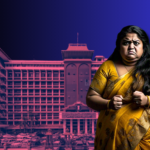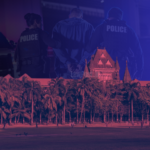In a significant legal development, the Supreme Court of India on Monday heard petitions challenging the pre-censorship of films, specifically raising concerns over its applicability to documentaries. The bench, comprising Justices BR Gavai and KV Viswanathan, delved into the core grievances raised by the petitioners, including the regulatory framework for documentaries and the Central Government’s revisional powers over the Central Board of Film Certification (CBFC).
Appearing for the petitioner, Advocate Gautam Narayan highlighted that documentaries should not fall under the ambit of “cinematograph” as defined under the Cinematograph Act, 1952. He contended that the Act requires reevaluation, particularly regarding the constitution of the CBFC and its advisory committees.
“These require consideration because there are no qualifications prescribed as to who should be the Chairperson. There are 25 members, [but] what sort of qualification these members should possess, their experience in the field of certification of films and other forms of audio-visual demonstrations…” Narayan argued before the bench.
Justice KV Viswanathan posed a pointed question, asking, “Entirely cease pre-censorship in films also?” to which Narayan responded affirmatively, clarifying that their primary focus remains on documentary films.
The petition also drew attention to the 2023 notification issued by the Union Government, which introduced age-based classification for certification but failed to address the issues highlighted in the plea. Narayan remarked that the amendments were “very minor modifications” and did not address their concerns, adding, “We are focusing essentially on documentary films.”
The petition outlines two key prayers:
- Exclusion of Documentaries from the Cinematograph Act: Reading down provisions of the Act to exclude documentaries from its purview, declaring them beyond the ambit of Section 2(c) read with Section 2(dd) of the Act, and consequently exempting them from pre-censorship.
- Framing Specific Rules for Documentaries: Directing the central government to establish specific regulations regarding disclaimers, text, and length requirements for documentaries to align with their distinct nature.
Additional Solicitor General (ASG) Aishwarya Bhati, representing the Union, contended that the matter could benefit from adjudication by the High Court first. She noted that the field is evolving, particularly with recent developments like the 2023 notification, which introduced regulations for OTT platforms. However, Narayan countered, asserting that the notification overlooked documentaries entirely.
During the hearing, the independence of the CBFC and the Union’s revisional powers under Section 6 of the Cinematograph Act were also debated. Justice Viswanathan observed, “This is like saying [Article] 19(2) restriction also should not be [seen],” prompting a rebuttal from Narayan, who emphasized that their arguments did not challenge constitutional restrictions but focused solely on the unique nature of documentaries.
The Court permitted amendments to a connected petition and scheduled the matter for further hearing in January 2025.
The case, titled Amol Palekar v. Union of India Ministry of Information and Broadcasting, W.P.(C) No. 187/2017, remains pivotal in shaping the regulatory framework for documentaries and potentially redefining the broader discourse on censorship.








